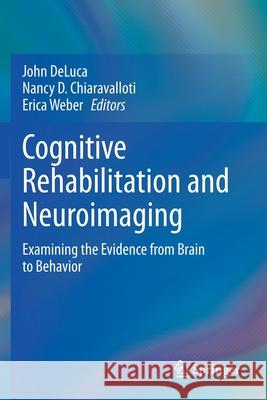Cognitive Rehabilitation and Neuroimaging: Examining the Evidence from Brain to Behavior » książka
topmenu
Cognitive Rehabilitation and Neuroimaging: Examining the Evidence from Brain to Behavior
ISBN-13: 9783030483845 / Angielski / Miękka / 2021 / 306 str.
Kategorie BISAC:
Wydawca:
Springer
Język:
Angielski
ISBN-13:
9783030483845
Rok wydania:
2021
Ilość stron:
306
Waga:
0.43 kg
Wymiary:
23.39 x 15.6 x 1.63
Oprawa:
Miękka
Wolumenów:
01
Dodatkowe informacje:
Wydanie ilustrowane











